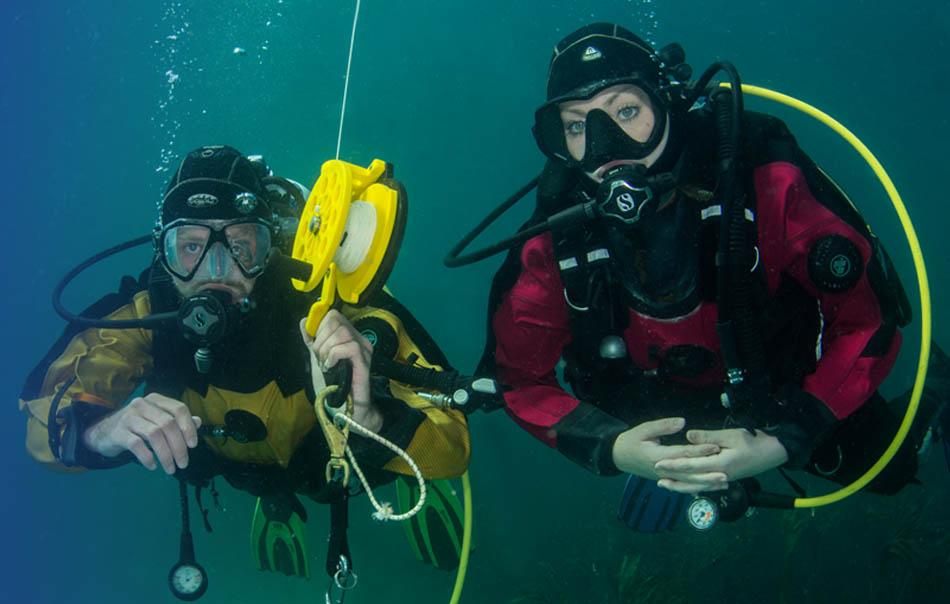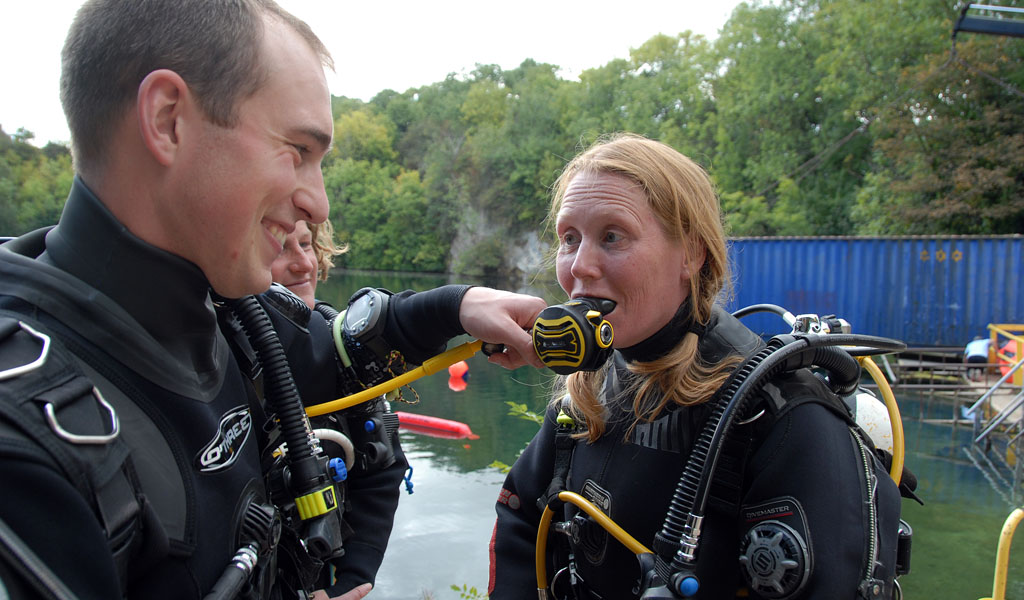
So you’ve passed your Dive Leader – where do you go from here?
Gordon Procter, BSAC Advanced Diving Instructor and First Class Diver, sets out some ways to make the most of the Dive Leader grade and keep ahead of the curve.
How to become a better Dive Leader
Getting to BSAC Dive Leader is a real achievement: it’s a great course with lots of good material. But where do you go from there? I’m pretty sure that I can’t avoid the phrase ‘Advanced Diver’ completely in this article, but equally, it isn’t the only thing you can do and I won’t get away with just printing those two words on every page! So, if not every Dive Leader is going for that just yet – what else can you do to be a better Dive Leader?
1. Go diving, a lot!
This has to be top of the list. It’s why you started diving, so get out and do lots. There isn’t any substitute for time in the water to make you a better diver.
2. Vary your scuba diving
For me, the best thing about diving in the UK is the variety. We have a fantastic range of sites to explore:
- big intact wrecks
- remote island-hopping adventures
- stunning walls
- marine protected areas with excellent wildlife as well as some muddy puddles...
- As well as this brilliant range of sites, there’s a wide range of different conditions to explore them in: rain, wind (from a whole variety of directions), fog, snow, hail and the occasional glorious sunny day.
- Then there are the water conditions: fantastic viz, especially exciting drifts; silty viz; plankton-y viz; diver soup and really horrendous viz.
If you always dive the same sites in the same conditions then you’ll get really good at that, but you’ll be a much more rounded diver if you are regularly out diving sites that you haven’t done before, in a range of conditions (and gradually building on your experience).
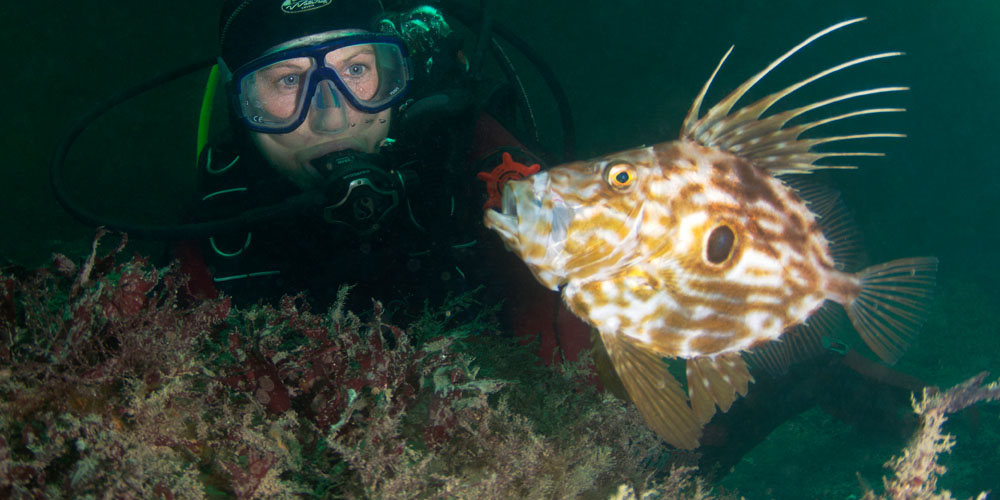
Review your Dive Leader theory knowledge with the online quizzes.
3. Do interesting things and don’t stop learning
The title for this is deliberately broad: I don’t know what you find interesting, but hopefully you do – so go and do it! If you don’t know what you find interesting yet – then go and do lots of different things and hopefully you’ll find an interesting niche!
Skill Development Courses (SDCs)
BSAC has a really wide range of Skill Development Courses (SDCs) that you can do:
- a whole variety of first aid courses like using Defibrillators, First Aid for Divers, or the Lifesaver Award Course that build on what you’ve already done in Dive Leader.
- Boat Handling and Chartwork and Position Fixing are great fun to do if you haven’t already because they help to equip you putting on a trip to wherever you want to take your branch away.
Check out all scheduled regional training events.
Try technical diving
There’s also an option to pick up some more technical skills: BSAC’s Try Tech events have been really successful and are a good introduction to rebreathers before you decide whether to do a course. Similarly, you could go and do the Advanced Decompression Procedures course to give you the option to accelerate your decompression.
Find scheduled Try Tech events
Nautical Archaeology
I’ve done a few bits and pieces with the Nautical Archaeology Society – and it’s an interesting way to get a bit more out of a wreck dive. I used to know roughly one end of a wreck from the other, but by doing a bit of research around typical shipwreck constructions and layouts it’s much easier to orient yourself on a new site.
There are NAS courses that run over a day or two, and give you an introduction to surveying and recording, or why not seek out the appropriate permissions to dive a protected wreck?
Visit the Nautical Archaeology Society website.
Marine Biology and SeaSearch
In the same way that starting to think about nautical archaeology has made wreck dives more interesting for me, finding out a bit about various squidgy and swimmy creatures has made every dive more interesting for me, because I have now got a slightly better idea of what I’m looking at and where to look for different creatures.
Seasearch also does a series of good courses and organise trips to record a range of sites.
Visit the Seasearch website
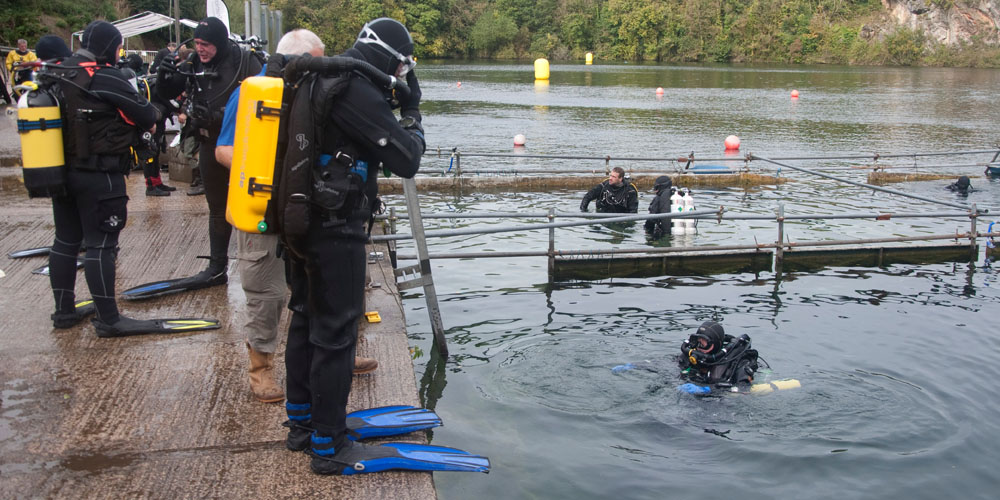
Pick up some Technical diving skills with BSAC.
4. Organise attention-grabbing club (branch) events
If anything I’ve mentioned above sounds interesting to you, then it probably will be for the other people in your club – so why not organise an event to do it?
5. Diving buddy and group variety
As well as diving on a wide range of sites, dive with a wide range of buddies. You’ll pick up all sorts of interesting hints and tips from more experienced buddies, and I find that I learn almost as much from less experienced buddies because they look at the world from a different perspective.
Stay open to other ideas – don’t copy things that your club has always done just because they’ve always done it that way, and a bit of healthy cynicism will stop you believing everything that any old numpty tells you!
6. Learn from mistakes
You’ll have moments underwater when you wish that you were on the surface (hopefully only a small number!). If you can fall back onto your training and extricate yourself from that situation, then it’s well worth having a think about what you would do differently to avoid that from happening again.
The trick here is to be really objective in your analysis – it’s easy to say things like “Well, I’d avoid that situation by never diving with them ever again”, but it’s more useful to think about what clues they gave you beforehand that the dive was going to be difficult, or whether there was anything you could have anticipated better. A near miss (when, but for luck or chance, you would have had an incident) is an equally good learning opportunity.
Life is too short to make every mistake yourself, so you need to learn from other people’s too. So, if anyone else in your club has a problem on a dive, then it’s worth trying to think about what you would do to avoid that problem. But again, be objective – simply saying that you’re a better diver and so wouldn’t have had that incident isn’t very helpful!
Equally, be sensitive about it – boasting in the pub that you’re a much better diver than them isn’t going to go down very well! BSAC’s incident report (produced every year) is a good way to get some of this information from incidents across the wider club. Read Annual Diving Incident Report 2018.
7. Log your dives
When I started diving, I used to write a very twee story in my logbook after every dive; I have friends that log even more than I used to (multiple pages per dive, and a blow-by-blow account of absolutely everything that happened).
Then I went through a phase where logging my dives was a bit tedious (and I’m still quite bad at doing it). However, I’ve now come to realise that it is actually really useful, as long as you log interesting and useful things.
I treat logging my dives as a chance to reflect on how my dive went, and also to learn from my mistakes:
- What did I enjoy or not on that dive?
- Did all my kit work okay, or is there something that I’d like to get fixed/rearrange for my next trip?
- Is there anything that I’d like to practice on my next quarry day?
- Do I need to remember to have a chat with my buddy about signals for our decompression plan before we get into the water (“Is he saying that he’s got five minutes of no-stop time left, or that he’s got five minutes of deco to do?”).
It’s also a chance to record useful site information for next time:
- Did you get a good GPS position for the site (or a set of transits)?
- Where were the interesting features that might help you find your way around next time? (“Follow the port anchor chain from the bow to find a wall that rises up to 12m and is a really nice way to end your dive”)
- What was the tide doing? (“We dived 2.5hrs before HW Oban, and even though it was still running on the surface, it was properly slack on the bottom”.)
Finally, when you do get to working towards Advanced Diver, you’ll have a log book full of experience dives, so won’t find yourself scrabbling around for signatures.
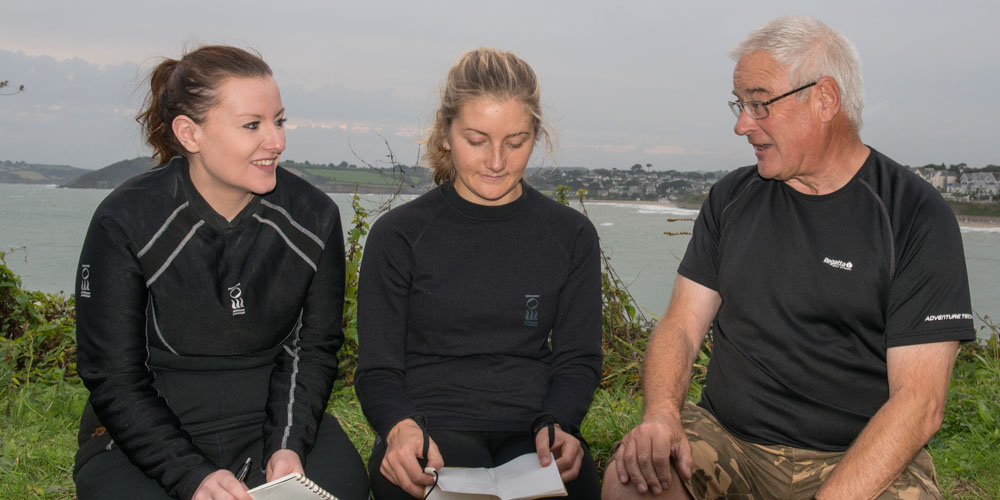
Review your Dive Leader theory knowledge with the online quizzes.
8. Develop your teaching skills
The Instructor Foundation Course is widely considered one of the best courses that BSAC run. It’s a bit like a try dive for instructing – you can have a go over a weekend and make an informed decision whether instructing is a thing you fancy doing more of.
For me, I put my instructing in the ‘Do interesting things’ category above – I really enjoy teaching people in my branch and developing them so they can come diving with me.
Thinking like an instructor also relates well to the part of being a Dive Leader where you gradually expand the experience of less experienced divers in your club.
9. Don’t get complacent
One of the difficult things to do after getting to BSAC Dive Leader is keeping your standards high. You go through the course, doing a super–clear buddy check with your ‘instructor-pretending-to-be-a-naughty-new-diver’ and excellent pre-dive briefings to your divers on the trips you’re organising, but it’s easy to let it slip.
A buddy check before every dive is a good way to catch any silly mistakes that you will make. Remember that you are now an example to everyone in your club – so try to resist the temptation to do things like sling your set on over your head, as newer members of your club will try and copy you, and that might not go very well.
Similarly, it’s important to stay current and keep your skills practised. Back when I did my Dive Leader, it had been years since I’d done the O2 course; I’ve started encouraging everyone in our club to do regular refreshers, to make sure that they can still remember everything in the course, and that they are up to date with the latest guidance.
10. Keep diving!
I’ve already said it, but it’s absolutely the point – so go diving!
Learning Curve article from SCUBA issue 83
Not yet a BSAC member? Let us help you find your local BSAC club
Send your postcode to hello@bsac.com and we'll help you find the right scuba club for you. Or if you fancy a chat call us 0151 350 6226 (Mon - Fri, 9 - 5:30).




